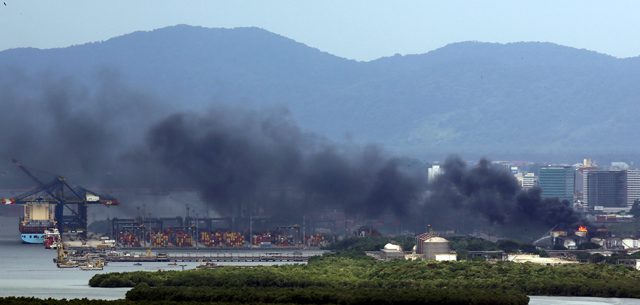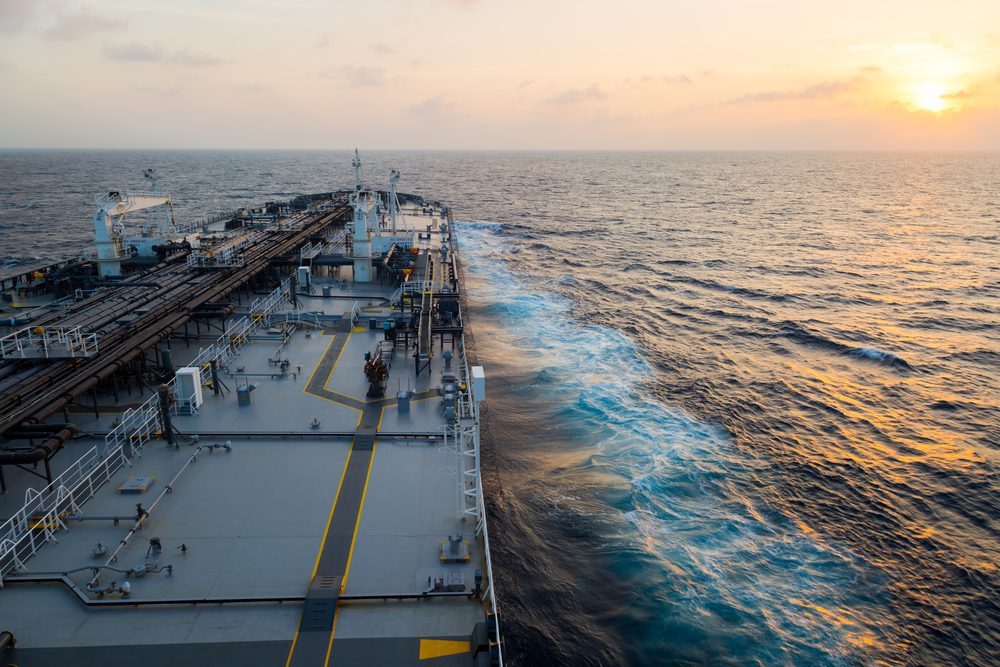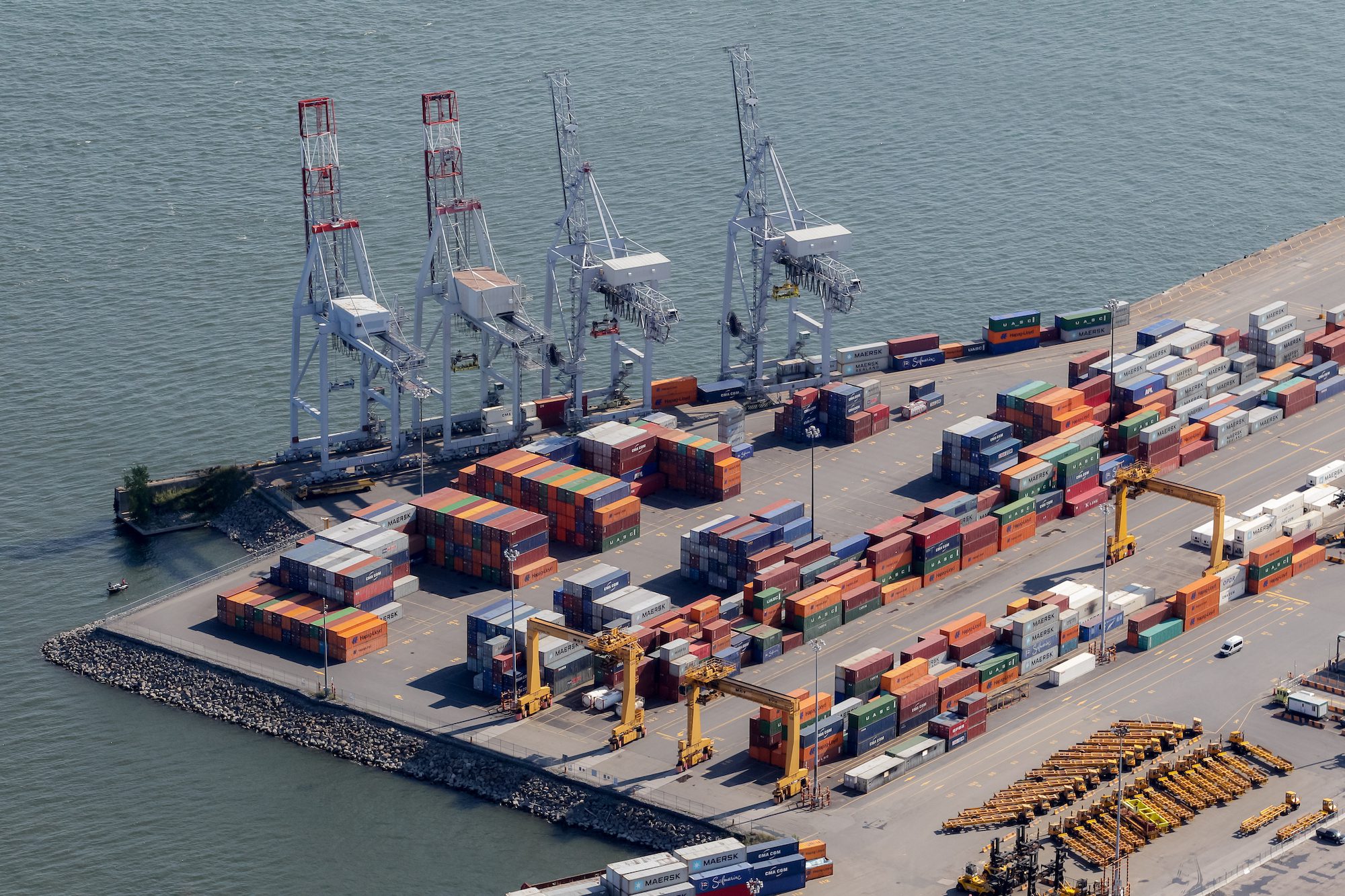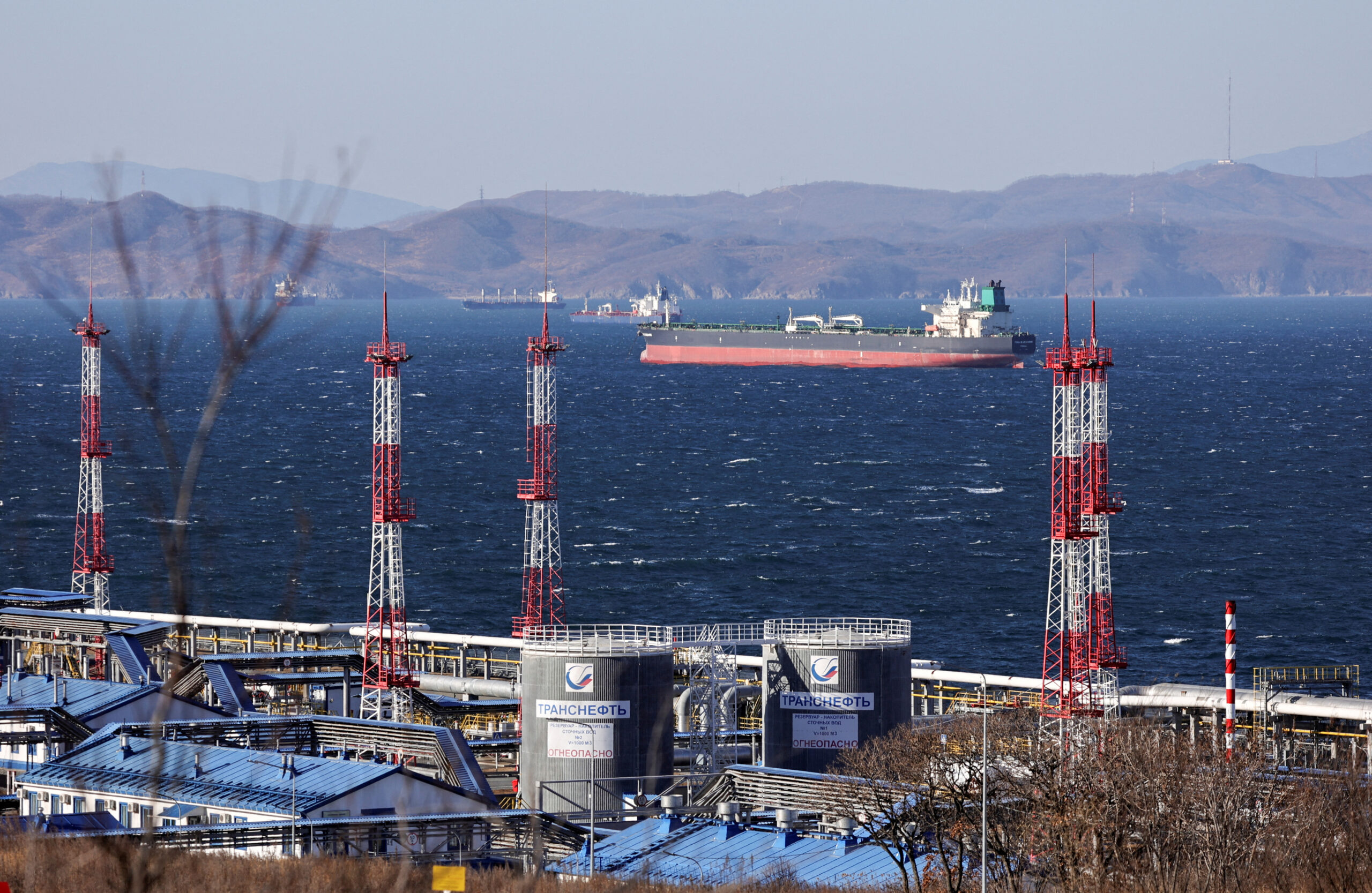Smoke rises from a fire at a fuel tank storage facility run by Ultracargo in Santos April 6, 2015. REUTERS/Paulo Whitaker
 RIO DE JANEIRO, April 7 (Reuters) – A fire at a fuel-storage facility at the Port of Santos, the largest port in Brazil, burned for a sixth day on Tuesday, restricting access to trucks delivering grains and other goods.
RIO DE JANEIRO, April 7 (Reuters) – A fire at a fuel-storage facility at the Port of Santos, the largest port in Brazil, burned for a sixth day on Tuesday, restricting access to trucks delivering grains and other goods.
Firefighters on Monday managed to extinguish the flames at a facility run by Ultracargo, a unit of Brazilian chemical and fuel-distribution company Grupo Ultra, only to see gasoline in one of the tanks reignite.
By Tuesday morning two of the six fuel tanks at the facility were on fire, Ultracargo said in a statement.
Police and highway operators have blocked much of the truck access to the port, and the harbor master has banned ship movements at terminals along the busy Alemoa docks. As a result, ships cannot restock bunker-fuel supplies.
The delays are unlikely to affect soybean and other grain-export volumes this month as the port has ample stocks, industry representatives said on Monday. Santos handles a third of Brazil’s soybean exports, half of its corn exports and much of the nation’s coffee and sugar shipments.
Port officials, however, said they did not know how long exports could be maintained in the face of the truck restrictions.
Trucks heading to the “right,” or City of Santos, side of the port on the Anchieta Highway were prevented from entering from midnight (0400 GMT) on Monday, highway operator EcoRodovias said.
The Santos mayor’s office plans to keep the entrance closed to most trucks until Friday, as firefighters contain and clean up after the blaze. However, port authority Codesp said on Twitter that the ban would be re-evaluated on Tuesday.
Trucks can still proceed to Guaruja, a city on the “left” side of the ship channel that provides access to the port.
The Santos side of the port is home to sugar terminals operated by Copersucar and Cosan SA’s Rumo Logistica. With the cane harvest beginning, Brazil is months away from peak sugar exports.
The Guaruja side is the site of the 6-million-tonne TGG grain terminal operated by ALL-America Latina Logistica SA , Amaggi and Bunge Ltd, as well as sugar terminal TAEG, a 50-50 joint venture between Cargill Inc and Louis Dreyfus Commodities’ Biosev sugar unit.
Six tanks with a combined capacity of 34,000 cubic meters (214,000 barrels) of ethanol and gasoline were damaged after the fire first broke out on Thursday, Ultracargo said. Not all the tanks were full at the time the blaze started. (Reporting by Jeb Bloun, Gustavo Bonato and Caroline Stauffer; Editing by Lisa Von Ahn and Paul Simao)
(c) 2015 Thomson Reuters, All Rights Reserved

 Join The Club
Join The Club











